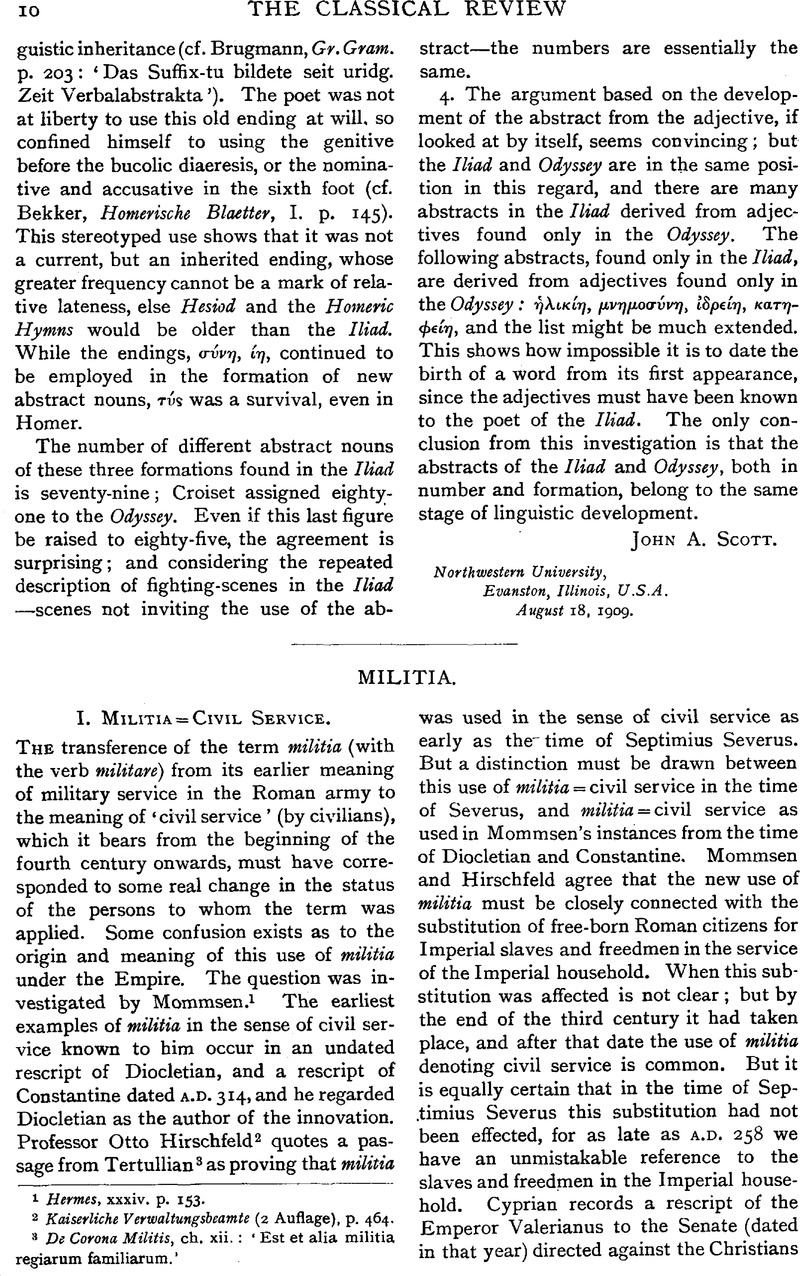No CrossRef data available.
Article contents
Militia
Published online by Cambridge University Press: 27 October 2009
Abstract

- Type
- Original Contributions
- Information
- Copyright
- Copyright © The Classical Association 1910
References
page 10 note 1 Hermes, xxxiv. p. 153.
page 10 note 2 Kaiserliche Verwaltungsbeamte (2 Auflage), p. 464.
page 10 note 3 De Corona Militis, ch. xii.: ‘Est et alia militia regiarum familiarum.’
page 11 note 1 Cyprian, Ep. 80: ‘Caesariani autem … confiscentur et in Caesarianas possessiones discripti mittantur.’ This passage proves that the Caesariani were still in the service of the Household, and were not yet reduced to the condition of overseers or serfs on Imperial estates, in which position they are found in Byzantine times (e.g., in Cod. Jus. iii. 26. 8, referred to by Mommsen, Hermes, xxiv. 151).
page 11 note 2 Loc. cit.
page 11 note 3 Kuhn, , Stadtsverfassung, vol. i., p. 152.Google Scholar
page 11 note 4 Hermes, xxxiv. 153, n. 3.
page 11 note 5 Venvaltungsbeamte, p. 464, n. 5.
page 12 note 1 Ἱππ⋯της is used in this sense (Studies in the … Eastern Roman Provinces, Ramsay, p. 377).
page 12 note 2 Also ‘mounted policeman’ (Liebenam, , Städteverwaltung, p. 358Google Scholar).
page 12 note 3 Quoted below.
page 12 note 4 The classical form is ζωοτρ⋯φος.
page 12 note 5 The first Π and E are joined by a horizontal bar, forming a second Π.
page 12 note 6 See Strabo, p. 577.
page 12 note 7 See Pauly-Wissowa, sub Cursus Publicus.
page 12 note 8 On διαφ⋯ρειν, with genitive, meaning ‘belong to,’ see Glotta, 1909, p. 118.
page 12 note 1 Class. Rev. 1905, p. 370.
page 12 note 2 Pauly-Wissowa, s.v. equiso.


